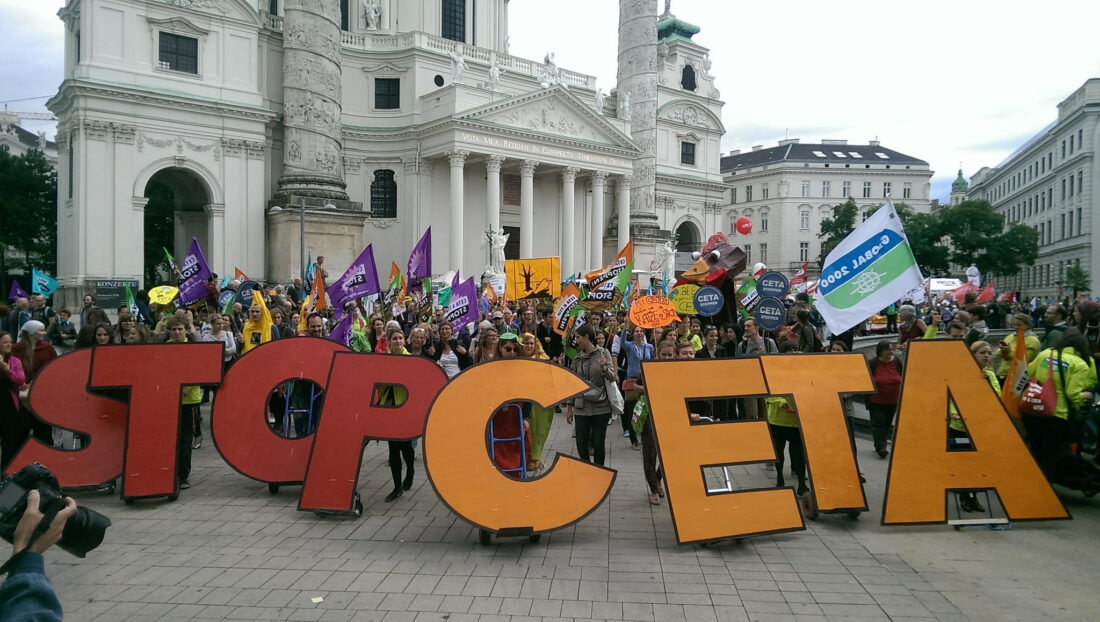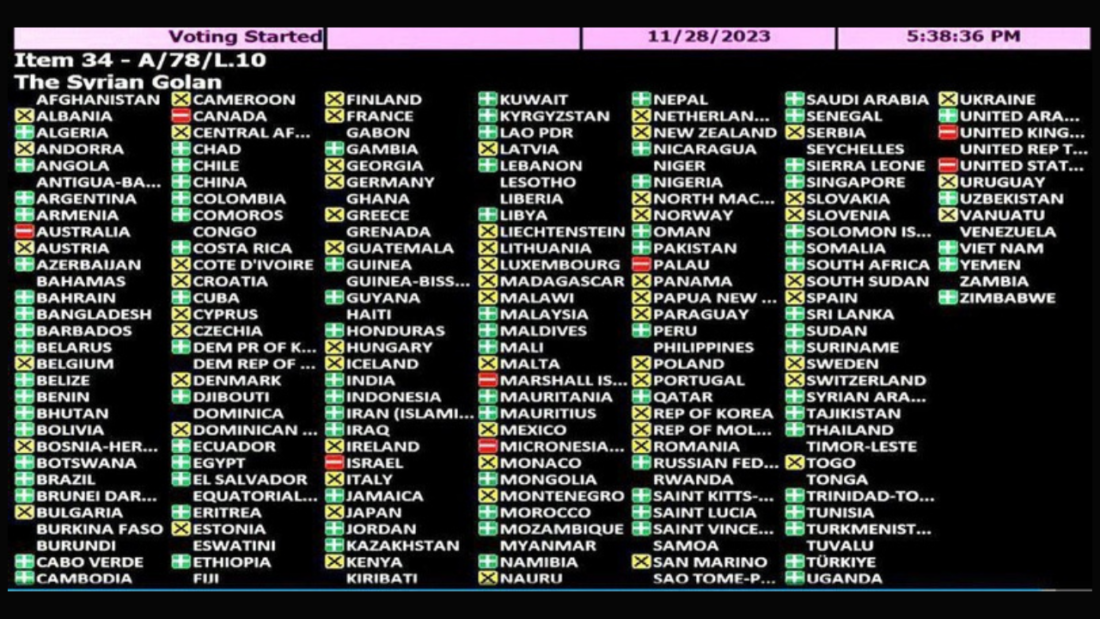
No to CETA – No to the menace of unbridled neoliberalism!
AKEL Political Bureau member Neoklis Sylikiotis: The Cypriot Parliament’s rejection of CETA an important step for the protection of labour relations
The plenary of the House of Representatives (31st July) voted to reject the EU-Canada Economic and Trade Agreement (CETA), an agreement which provoked a storm of reactions from trade unions, agricultural organizations, environmental movements, but also parties.
It should be noted that the only party that voted in favor of the ratification of CETA was the ruling rightwing DISY party (18 votes), while all the other parties voted against (37 votes).
The vote against the Agreement avoided a great danger for the Cypriot people, but also for the peoples of Europe in general, as health, the environment, food, but also thousands of jobs would be threatened.
Thousands of people, over the last five years, have expressed their opposition to the Agreement by participating in dozens of mass demonstrations in many European cities.
“As AKEL, we consider that the vote against CETA by the House of Representatives represents an important step for the protection of labour relations, the environment, health, but also of democracy itself in the countries that make up the EU,” stated the member of the Political Bureau of AKEL and former MEP Neoklis Sylikiotis to HARAVGI newspaper.
He stressed that AKEL from the moment when the Agreement was being drafted sounded the alarm about the negative consequences it would provoke, especially for a small state like Cyprus.
- Sylikiotis clarified that the European Parliament did not adopt any resolution in favor of the Agreement. What was approved in 2017 was the beginning of the approval procedure by the national parliaments of member states.
“As a result of the continuous actions and pressure exerted, the European United Left-Nordic Green Left (GUE/NGL), trade unions, environmental and social movements have laid the foundations to overthrow CETA at a member state level.”
Asked what was the Cypriot government’s position on the Agreement, N. Sylikiotis replied that the DISY-Anastasiades government did not assert or negotiate on individual issues of CETA, so that there could be some improvements that could benefit Cyprus.
He pointed out that there was a possibility that the Agreement would be brought back to the EU-Canada negotiating table.
For this to happen, N. Sylikiotis stressed that the Agreement would have to be renegotiated, then brought to the European Parliament and then the European Commission to be negotiated with Canada.
“This agreement puts the interests of the multinational companies and big capital above everything else,” he underlined.
He explained that the Agreement aims to deregulate the labour market, namely to dismantle all traces of protection for working people and to abolish the existing standards on food and the environment across the EU.
“The agreement paves the way for the liberalization of trade in public services, public procurement, violating intellectual property, impinging on agriculture and health. In other words, the Agreement serves the plans of unbridled neoliberalism and its advocates. “Democracy itself is being curbed, because the multinationals, through the provisions provided for by this Agreement, will be able to challenge the decisions of sovereign states, claiming compensation when their profits are adversely affected.”
- Sylikiotis explained that the claim of compensation by multinationals can be exercised through out-of-court mechanisms for resolving disputes between investors and the state.
AKEL on CETA’s environmental dimension
“Despite the fact that the climate emergency situation demands a strong and international action, as well as coordinated policy, CETA avoids environmental concerns that are major issues for our century”, stressed the Head of the Environment Bureau of the C.C. of AKEL Christina Nikolaou.
She stressed that the main problems stemming from this agreement are, among other things, the downgrading of health and environmental issues.
“The references in the Agreement for the necessary action on climate change are negligible and most important of all they are not legally binding. While stating that trade or investment cannot weaken or reduce the level of protection of environmental legislation, the procedures for enforcing this level of protection must not be “complicated or overly expensive”, confirming our concerns.
Christina Nikolaou noted that the above prove that specific provisions of the agreement allow foreign investors to sue EU member states for the laws they adopt and which they consider affect their own profits, including laws seeking to protect public health, the environment or working people’s rights.
CETA creates unfair competition in agricultural products
CETA is contributing to intensification and surplus production in vulnerable agricultural sectors, such as meat and dairy products, and this will have a negative impact on small-scale farmers on both sides of the Atlantic, creating waves of unemployment.
“We welcome the fact that the House of Representatives voted against the Agreement and safeguarded the interests of Cypriot producers and consumers, given that the agricultural sector would be hit hard because our products will not be competitive, due to the tariffs that would be imposed,” said the General Secretary of the Union of Cypriot Farmers (EKA) Panikos Hambas.
He stressed that the uncontrolled movement of products that is prevalent without controls and proper regulations is often done to the detriment of small states, as it is difficult for them to compete with big countries.
- Hamas observed that when big monopolies move their factories to countries with a cheap labour force, producing low-cost products, which are then channeled to European companies, they can’t compete with them.
“Big monopolies and trusts impose their interests on the small, whether they are called small and medium businesses or states. We can take as an example “Chiquita”, the well-known banana production company, which monopolized the European market, resulting in the closure of many medium and small businesses”.
He stressed that there must be proper control and scrutiny that respects the environment and the producer, but also the consumer.
“There needs to be a balanced policy on these issues, from the World Trade Organization (WTO), so that the land will not be over-exploited. “There is only one Planet Earth and we must respect it,” he concluded.




